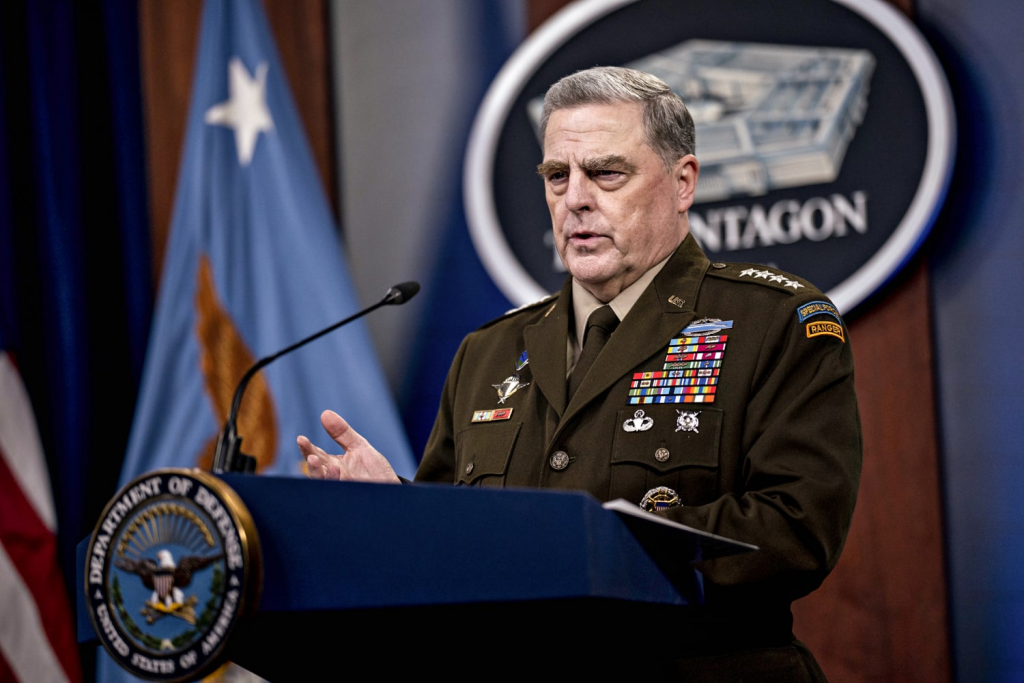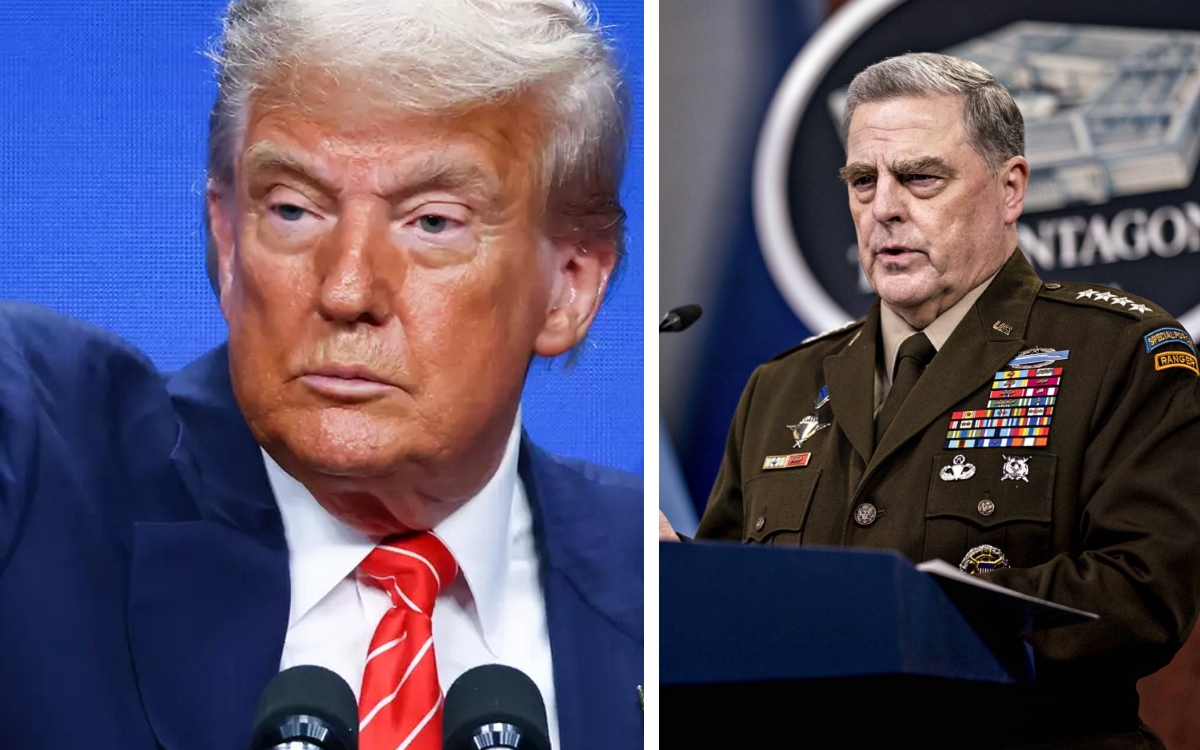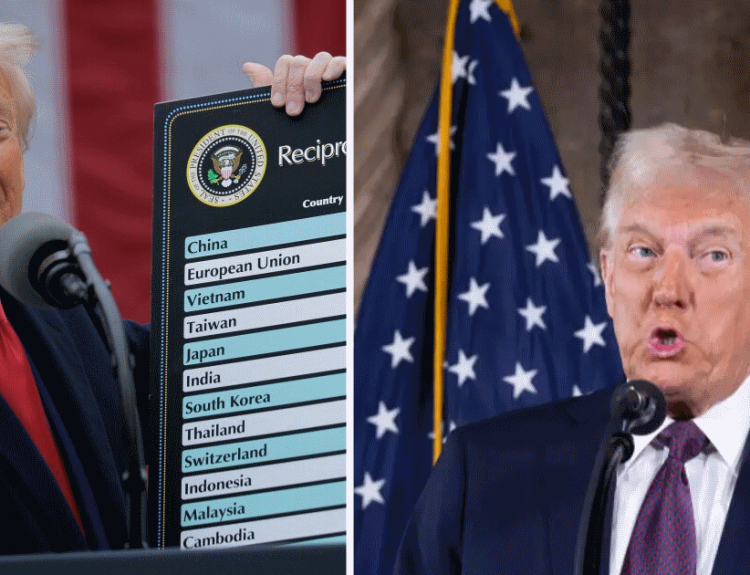As debate swirls over presidential war powers, many Americans wonder: if President Trump ordered a nuclear strike, could his top generals legally say “no”? According to nuclear-security expert Dr. Elizabeth Saunders of Johns Hopkins University, the answer is a stark “no”—the U.S. Constitution vests sole launch authority in the commander-in-chief, and existing protocols offer no veto by military officers.
Under current U.S. policy, the President’s order travels through the National Military Command Center at the Pentagon. Once authenticated, the order is transmitted to missile crews or bomber units, who are legally bound to obey. The Department of Defense’s own materials state that “no one in the chain of command has the authority to veto or cancel a lawful order.”

@DefenseDept “The National Command Authority—President and Secretary of Defense—issues nuclear launch orders; executing forces must comply.” view on X
Dr. Saunders explains to Reuters that “there is no legal mechanism for a ‘refusal’ in the military code. Officers who disobey a valid launch order face court-martial for dereliction of duty.” She notes that the two-person authentication in missile silos or on aircraft ensures procedural correctness, but does not grant override power.
@Reuters “Expert: US military code obliges obedience to nuclear orders; no room for refusal.” view on X
Historically, civilian control of the military is a cornerstone of American governance. Article II of the Constitution names the President as commander-in-chief, and the Federalist Papers underscore the need for rapid decision-making in a nuclear crisis. Delays or dissent could undermine deterrence, military strategists argue.
Legal scholar Prof. John Hart of Georgetown University adds nuance in a Council on Foreign Relations report: “While generals cannot legally refuse, they can advise strongly against an order, hoping the President changes course before authentication.” Yet once the launch code is entered and verified, the process is irreversible.
@CFR_org “Senior officers can provide counsel but lack legal grounds to block nuclear launch orders.” view on X
The role of the Secretary of Defense may appear as a check, but in practice they are required to follow the President’s directive or resign. During the Cuban Missile Crisis, Secretary Robert McNamara delayed implementation to clarify orders, but never outright refused. Modern secretaries face similar pressures—either comply, or step aside.

Some observers point to the War Powers Resolution of 1973, which mandates Congressional consultation for hostilities beyond 60 days. Yet nuclear strikes, by their instantaneous nature, evade such provisions, making legislative oversight largely symbolic.
@SCOTUSblog “War Powers Resolution does not constrain immediate nuclear use—its safeguards apply to prolonged hostilities.” view on X
Retired Air Force Gen. Laurence Chen once told CNN that “we trust our civilian leaders to act responsibly. Our duty is to execute—refusal is not an option. The world’s security hinges on that certainty.”
Still, calls for reform are growing. Senator Elizabeth Warren introduced the No-First-Use Act, which would commit the U.S. to never use nuclear weapons first, and require Congressional authorization for any launch. Critics argue it could weaken deterrence; supporters say it adds a vital safety layer.
@SenWarren “No President—Donald Trump or anyone—should have unchecked power to launch nuclear war.” view on X
Military ethicist Dr. Mary Kaldor writes in Foreign Affairs that “unanimous global discomfort with a single individual’s launch authority has spurred proposals for collective decision-making, perhaps involving the Joint Chiefs or even an international body.” Such ideas, however, face steep constitutional hurdles and political resistance.
@ForeignAffairs “Proposed reforms include multi-person launch boards—to reduce risk of rogue orders.” view on X
Former National Security Adviser Tom Donnelly argues in a Brookings Institution essay that “any dilution of presidential authority could embolden adversaries who doubt our capacity for decisive action. The answer lies not in new veto rights for generals, but in ensuring the President’s judgment is sound through rigorous advisory processes.”
Public opinion on the matter remains divided. A Pew poll shows 58% of Americans oppose giving military officers the right to refuse unlawful orders, yet 62% support requiring a second civilian sign-off for nuclear use—a reflection of widespread anxiety over concentrated power.
In an era of heightened nuclear risk, from North Korea’s missile tests to Russia’s saber-rattling, experts agree the ultimate safeguard rests on the President’s temperament. Dr. Saunders warns that “the legal framework offers no escape hatch. It’s a sobering reminder that democracy demands responsible leadership at the very top.”






